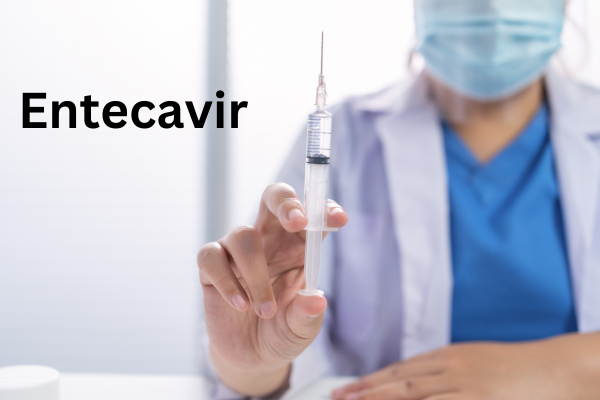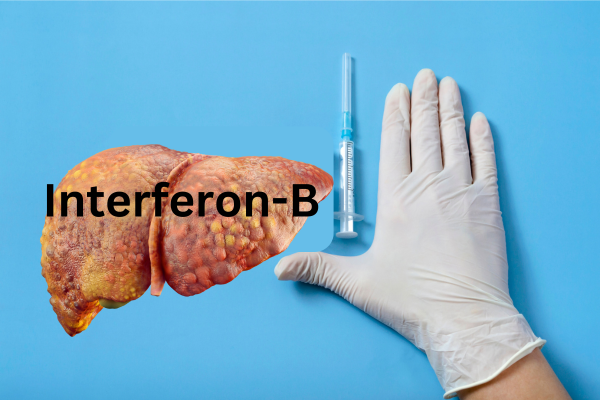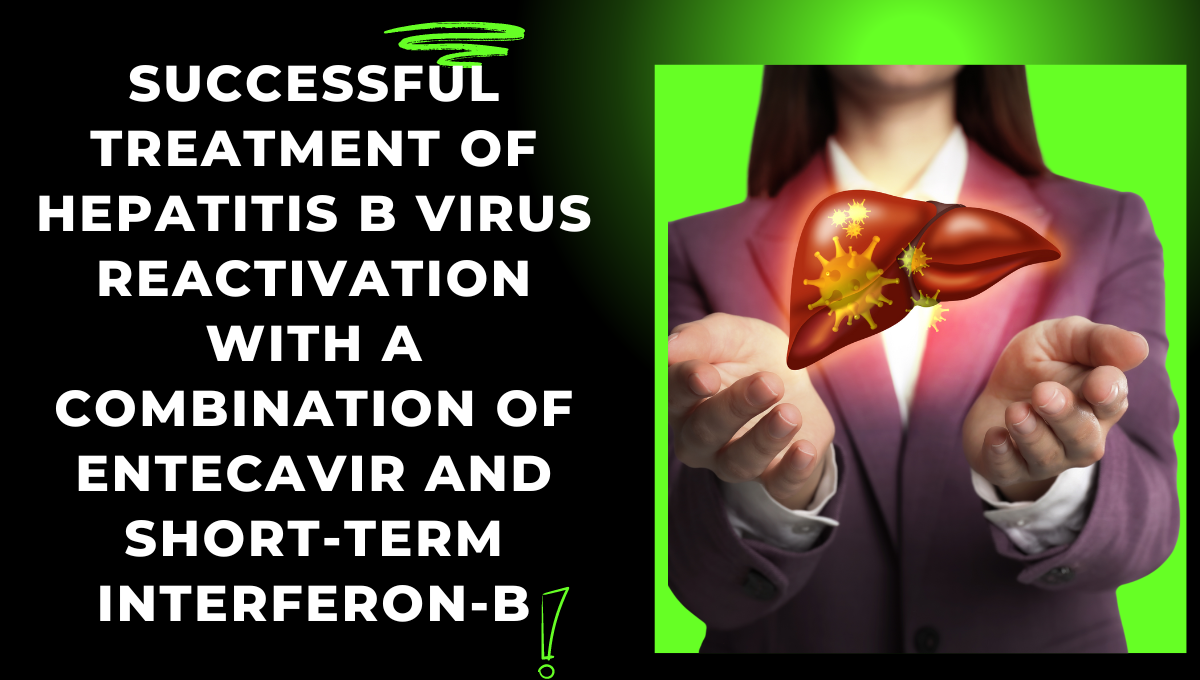Successful Treatment of Hepatitis B Virus Reactivation with a Combination of Entecavir and Short-Term Interferon-B
Reactivation of the hepatitis B virus (HBV) is a dangerous side effect that can happen to those who have previously contracted the HBV virus, especially those receiving immunosuppressive treatment, chemotherapy, or organ transplantation. HBV reactivation can cause fatalities as well as significant liver damage and liver failure if left untreated. But new developments in antiviral therapy have made available efficient treatment choices. The successful treatment of HBV reactivation with a combination of short-term Interferon-B and entecavir—a powerful tactic for controlling this viral resurgence—is the main topic of this paper.
Recognizing Reactivation of the Hepatitis B Virus
Hepatitis B Virus Reactivation: What Is It?

The term “HBV reactivation” describes the unexpected resurgence of viral replication in people whose HBV had previously been suppressed or had lain latent. It frequently happens in the setting of immunosuppression, such as following organ transplants, immunosuppressive medications, or chemotherapy. If left untreated, this illness can cause severe inflammation and damage to the liver.
Who Is Subject to HBV Reactivation Risks?
Those who are HBV carriers or who have previously contracted HBV but no longer have active illness are usually at risk of HBV reactivation. Individuals undergoing immunosuppressive treatment, such as corticosteroids, biologic drugs, or chemotherapy, are especially vulnerable. The degree of immunosuppression raises the danger.
How Does Reactivation of HBV Happen?
When an HBV infection is latent, the virus stays dormant in the liver. HBV reactivation, on the other hand, might result from the virus’s quick replication when the immune system is compromised. Acute hepatitis and, in extreme situations, liver failure may result from this.
First Line of Defense: Entecavir
Entecavir: What Is It?

The main purpose of the antiviral drug entecavir is to treat chronic Hepatitis B. It is a member of the nucleoside analogue class, which prevents HBV DNA replication to limit the virus’s ability to propagate and lessen liver damage.
How Does Entecavir Help Reactivate HBV?
Entecavir’s strong antiviral efficacy and low resistance profile have made it the preferred first-line treatment for HBV reactivation. In those who are undergoing reactivation, it efficiently suppresses HBV replication, halting the advancement of liver disease.
strong barrier to resistance: Entecavir exhibits a strong barrier to resistance, which prevents the virus from evolving mutations over extended periods of time while being effective.
Safety profile: Compared to earlier antiviral treatments, it is usually well tolerated and has fewer adverse effects.
The Reasons Entecavir Is Selected Among Various Antivirals
Entecavir has proven to be more effective than other antivirals, such as lamivudine and adefovir, in lowering virus loads and preventing resistance. Because of its safe profile and good pharmacokinetics, it is a key component in the treatment of HBV reactivation.
Interferon-B’s Function in the Treatment of HBV
Describe Interferon-B.
One particular class of cytokine that is essential to the body’s defense against viral infections is interferon-B. Due to its immune-boosting properties, it has been utilized for many years in the treatment of persistent HBV and other viral infections.
How Does Interferon-B in Short Term Function?

The immune system is boosted to combat HBV by short-term interferon-B therapy. In conjunction with antiviral medication such as Entecavir, it can aid in the reduction of HBV replication and facilitate the removal of infected hepatic cells.
Immunomodulatory effects: Interferon-B improves the body’s defenses against HBV, which helps the virus be better contained.
Short-term use: Applying Interferon-B for a brief period of time reduces the likelihood of side effects, which are more frequent when used for an extended period of time.
Advantages of Using Entecavir and Interferon-B Together
Treatment is more successful when Entecavir and short-term Interferon-B are used together than when they are used separately due to their synergistic effects. A two-pronged attack on the virus is produced by the immune-stimulating properties of interferon-B and the direct prevention of HBV replication by entecavir.
Clinical Trials and Case Studies on Treatment Success
Case Study 1: A Chemotherapy Patient’s Successful Management
Chemotherapy reactivated a 55-year-old male patient with a history of lymphoma and chronic HBV infection. Entecavir and short-term Interferon-B were used in his treatment. With little to no liver damage, the patient’s HBV reactivation was completely remitted when the combination therapy successfully reduced the viral load.
Clinical Trial: Entecavir and Interferon-B Efficacy
Compared to individuals receiving Entecavir alone, combination therapy consisting of Entecavir and short-term Interferon-B significantly reduced viral levels in a clinical trial with 200 patients who had HBV reactivation. Higher rates of seroconversion were also observed with the combo treatment, suggesting a more robust immunological response.
Methodical Approach to Treatment 1. Identification and Preliminary Evaluation
Patients should have a complete clinical evaluation, including quantification of HBV DNA and liver function testing, prior to beginning treatment. This aids in assessing the degree of liver damage and HBV reactivation.
- Initiating Antiviral Treatment
Depending on the degree of reactivation, 0.5 to 1 mg of entecavir should be taken daily. Patients’ liver enzyme levels and virus loads should be routinely checked. - Introducing Interferon-B for Short-Term Use
Interferon-B is administered once the patient’s response to Entecavir has stabilized. A short-term regimen spread out across 12 to 16 weeks is the norm. To track the patient’s response to therapy, close observation is necessary. - Observation and Modifications
Patients are tracked for adverse effects and treatment response during the course of treatment. To guarantee viral suppression, HBV DNA levels should be monitored on a regular basis. - Aftercare and Extended Administration
Patients must take Entecavir continuously after the combination therapy is finished in order to stop future HBV reactivation. To guarantee ongoing viral suppression, routine monitoring for HBV DNA and liver function is crucial.
Benefits of Interferon-B and Entecavir Combination Therapy
- amplified suppression of viruses
In comparison to monotherapy, the combination of immune-modulating and antiviral treatments effectively suppresses HBV, promoting a stronger immunological response and avoiding viral resistance. - Decreased Resistance Risk
Long-term viral control is ensured by tecavavir’s high barrier to resistance and Interferon-B’s immune-stimulating properties, which lessen the chance of HBV mutations and resistance. - Reduced Chance of Hepatic Injury
Combination therapy helps shield the liver from additional damage by limiting HBV reactivation, which lowers the risk of liver failure and cirrhosis.
Possible Adverse Reactions and Hazards
The Entecavir side effects
Although most individuals tolerate entecavir well, others may have nausea, lethargy, or headaches. Usually minor, these adverse effects go away as you continue to take the product.
Interferon-B Similar Adverse Reactions
Even with short-term use, interferon-B can induce sadness, exhaustion, and flu-like symptoms. These adverse effects, however, are frequently tolerable and transient.
Controlling Adverse Reactions
It is imperative to closely monitor patients during their treatment to guarantee that adverse effects are promptly detected and appropriately addressed. Dosage modifications can be required in some circumstances to reduce side effects.
In summary
An important development in antiviral medication is the effective treatment of hepatitis B virus reactivation with a combination of Entecavir and short-term Interferon-B. This dual approach reduces liver damage and improves patient outcomes by increasing immune system clearance of infected cells while simultaneously offering greater suppression of viral infections.
Patients who are at risk of HBV reactivation can be effectively controlled, lowering the risk of severe liver consequences and ensuring long-term viral control, by adhering to a step-by-step treatment strategy. As a first-line treatment for HBV reactivation, healthcare professionals should take into account this combination medication, especially for high-risk patients receiving immunosuppressive therapy.


1 thought on “Successful Treatment of Hepatitis B Virus Reactivation with a Combination of Entecavir and Short-Term Interferon-B”